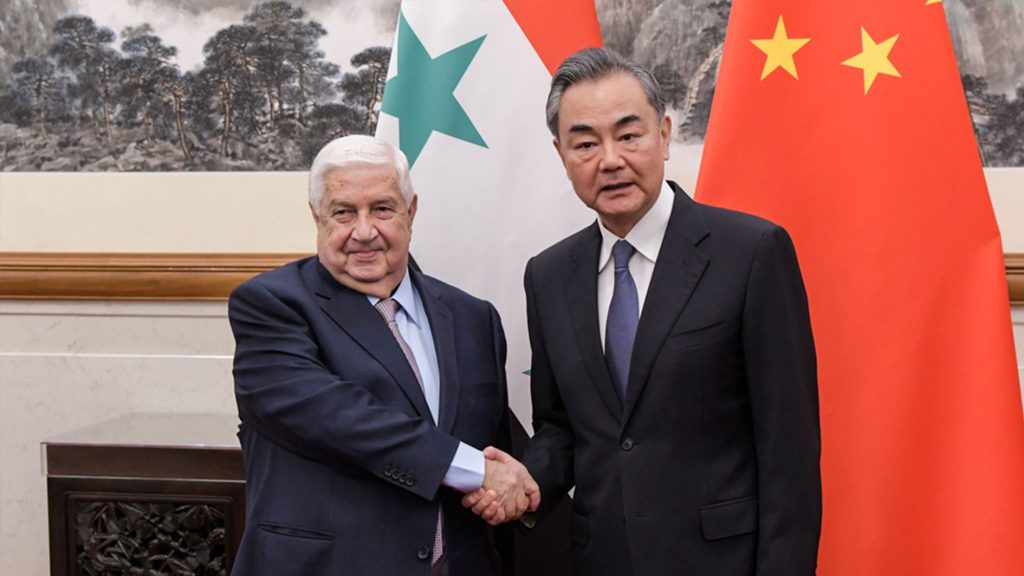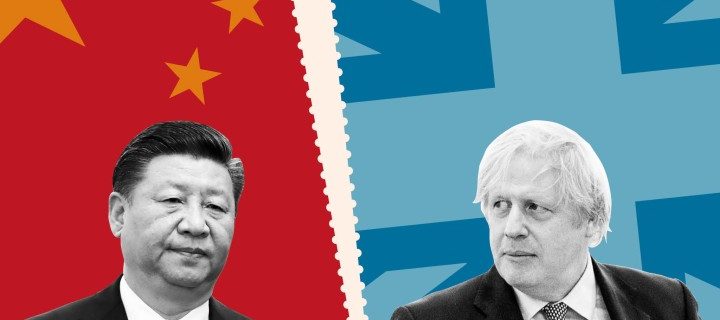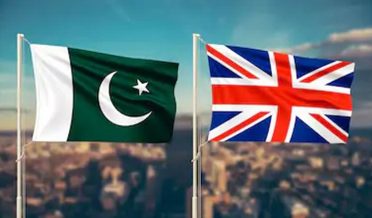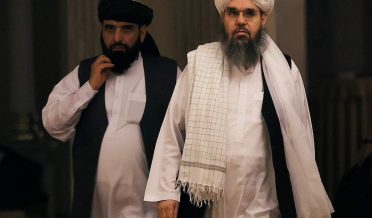Nisar Ahmad
Chinese-United Kingdom relations more commonly known as British–Chinese relations, Anglo-Chinese relations, and Sino-British relations, refers to the interstate relations between China (with its various governments through history) and the United Kingdom. The United Kingdom and China were on opposing sides of the Cold War. Both countries are permanent members of the United Nations Security Council. In recent months, the relations between the two countries have been controversial and hostile due to the Hong Kong national security law that was passed by China on June 30, 2020. A special correspondent Christopher Giles reported that the UK’s relationship with China, the world’s second largest economy and most populous country, has worsened.

The countries have fallen out over issues including Hong Kong, tech giant Huawei and alleged human rights abuses against China’s Uighur ethnic group. Hong Kong is a former British colony, which was handed back to China in 1997. But before Hong Kong was returned, the UK and China made an agreement to introduce “one country, two systems”. It was agreed that Hong Kong’s capitalist system, which was different to China’s communist model, would continue. It also meant Hong Kong has its own legal system and borders, and rights such as freedom of assembly, free speech and freedom of the press are protected. It is one of the few places in Chinese territory where people have been able to mark the 1989 Tiananmen Square crackdown, where the military opened fire on unarmed protesters in Beijing. But the UK says this agreement – known as the Joint Declaration – is under threat because the territory has passed a new law that gives China sweeping new controls over the people of Hong Kong. The new law came into effect on the 30 June following months of mass protests. The UK also has an interest in Hong Kong because 300,000 UK nationals live there. UK suspended its extradition treaty with Hong Kong.
Extradition is when one country formally gives up a person to another country where they are accused of crimes. At present, the UK could ask the authorities in Hong Kong to hand over someone suspected of a crime in the UK – and vice-versa. However, the UK has raised concerns that under the new security law in Hong Kong, suspects could be sent to China. Critics say it could see pro-democracy protesters in the region being served with life sentences. The UK Prime Minister Boris Johnson has also pledged to offer three million Hong Kong residents the chance to settle in the UK. They could ultimately apply for citizenship. That number includes 350,000 people who have British National Overseas passports, and 2.6 million more who are eligible to apply. The Chinese government has accused the UK of “brutal meddling” in its domestic affairs. A spokesman for the Chinese embassy in London said the passports offer meant the UK was breaking its own promises, as well as international laws. “The UK government keeps making irresponsible remarks on Hong Kong affairs,” ambassador Liu Xiaoming said. “We want to be your friend. We want to be your partner. But if you want to make China a hostile country, you will have to bear the consequences.” Huawei is a Chinese tech company and is the second largest provider of smartphones in the world.
Many countries were considering using Huawei to build new 5G networks to provide faster internet. But there are concerns that the Chinese government could use the company to spy on foreign countries. The UK government has ordered the removal of all Huawei kit from 5G networks by 2027. It will also ban mobile providers from buying new Huawei 5G equipment by the end of 2020. Other countries, including the US, Australia, and New Zealand, have taken similar measures. Huawei maintains it has never been asked to spy. Uighur people are a mostly Muslim ethnic group in China’s Xinjiang province in the far-west of the country. There are widespread reports that the group are being imprisoned and persecuted for their way of life. The UK government has become more vocal about the issue, with Foreign Secretary Dominic Raab accusing China of “gross and egregious” abuses. The Chinese government says its actions in Xinjiang are necessary to prevent separatist violence by those wanting to break away from China.
China’s Ping-Pong Diplomacy in Syria
Chinese-United Kingdom relations more commonly known as British–Chinese relations, Anglo-Chinese relations, and Sino-British relations, refers to the interstate relations between China (with its various governments through history) and the United Kingdom. The United Kingdom and China were on opposing sides of the Cold War. Both countries are permanent members of the United Nations Security Council. In recent months, the relations between the two countries have been controversial and hostile due to the Hong Kong national security law that was passed by China on June 30, 2020.
The “Diplomate” correspondent Sophie Zinser wrote that a new phase of ping-pong diplomacy is quietly beginning over China’s strategic soft-power role in the Middle East. Once flights become available, 11-year-old Syrian table tennis star Hend Zaza will trade in her long-term Olympic 2020 dream for a short-term China one. A few months ago, Zaza was set to be the youngest athlete at the Tokyo 2020 Olympic Games. She made early March headlines across Western media outlets after beating Mariana Sahakian of Lebanon – 31 years her senior – at the Western Asia Olympic Qualification Tournament for Table Tennis in Amman, Jordan. With the Olympic games postponed until 2021, the Chinese Olympic Organizing Committee has invited Zaza to China to train with the nation’s top players to keep her game up for Tokyo.
A CCTV video circulated on Weibo gives Chinese viewers a backstory on Zaza’s rise to ping-pong fame. The video features clips of the young athlete dominating tables across the Middle East. Since her victory in Lebanon last February, Hend has been training for the Olympics in her hometown of Hama, Syria for three hours a day, six days a week. When asked about her move to China, Zaza mentions looking forward to having consistent electricity and playing on new tables, saying “I am so looking forward to my trip…I can’t wait!” The video ends with Zaza claiming that world’s top ping pong player – Chinese female star Ding Ning – is her idol; a statement which resonated with many Chinese-language commenters.
It comes as no surprise that Zaza would have her heart set on China. It is the world’s hub for top table tennis players. Over the last 60 years, the Chinese table tennis team has won over 230 gold medals and developed a three-tiered government-funded training system of local organizations, province-wide table tennis schools, and a national team boasting the world’s best coaches. Table tennis is an important national sport domestically in China and source of prominent Chinese contemporary culture icons like Ding. With China as her training ground, Zaza becomes a part of the world’s most elite table tennis circles.
At this pivotal moment in turbulent U.S.-China relations, Zaza’s pending journey reminds readers of other geopolitical relationships built on table tennis. In April 1971, a friendly exchange between American player Glen Cowan and Chinese player Zhuang Zedong paved the way for a National Committee on U.S.-China Relations-led invitation of American diplomats to Beijing. The friendship-turned-political-action culminated in the arrival of Richard Nixon to Beijing in 1972. Time Magazine hailed this seismic political moment as the “ping heard round the world.”
Get briefed on the story of the week and developing stories to watch across the Asia-Pacific.
It seems too soon to say whether China similarly intends welcoming Zaza as a symbol for diplomatic outreach to the wider Middle East. But the 11-year-old’s China dream epitomizes a geopolitical power shift east; one where the United States’ historically dominant role is
receding in China’s favour. Western China-Middle East analysts often homogenize China’s political and economic role in the Middle East’s diverse nations as exclusively focused on fossil fuel investments or on exporting clean energy tech. In those contexts, the term “Middle East” is often only used to reference a handful of Middle Eastern countries receiving large-scale energy investments from China, including the Gulf countries, Iran, and most recently in Egypt.
However, Zaza’s journey sheds light on the less clear long-term intentions of China’s role in the Levant, a region comprised of Syria, Lebanon, Jordan, Israel, Palestine. While Chinese and Syrian diplomatic relations date back to 1956, China recently stepped to the fore in the Levant with Xi’s 2018 pledge of $15 million to Palestine, along with another $91 million to Jordan, Lebanon, Syria and Yemen. Although these amounts seem significant, they are miniscule compared to China’s billions of investments in Gulf countries. This makes Xi’s 2018 pledge look more like a development promise than a bold strategic investment.
Syria differs greatly from other Levantine nations in that a nearly decade-long civil and proxy war continues to ravage the nation, leaving 5.5 million Syrians refugees internationally and over 6.1 million internally displaced. While Syria is the most oil rich country in the Levant, its estimated 2.5 billion barrels of oil reserves are dwarfed in comparison to – for example – Saudi Arabia’s 257 billion. Despite the comparative lack of oil regionally and intense conflict still raging in the country, China remains a leading candidate in bids to rebuild Syrian infrastructure. The likely immediate incentive for China to continue its relations with the Assad regime in Syria is to develop an “industrial port” linking the Red Sea, the Arabian Sea and the Persian Gulf to China’s other growing Belt and Road (BRI) projects across the region.
So far in the Levant, it would appear that China is defining its role as both development diplomat willing to work with any regime to meet BRI targets, all the while providing small-scale investments to stabilize relations in countries across the region. China’s role thus fills the vacuum that U.S. pullback from a more active foreign policy in the region is leaving behind. During COVID-19, China has also stepped up its aid diplomacy in Syria. In April 2020, China delivered a first batch of medical aid to Syria, including 2,016 COVID-19 test kits, and several rounds of medical gear. Diplomats in both countries also spoke in August about further details of subsequent aid shipments.
Whatever the mix of soft-power foreign aid approaches China is taking to assert a presence in the Levant, they appear to be tilting public perceptions in China’s favor. A July 2020 report from German organization Konrad-Adenauer-Stiftung e.V (KAS) indicates domestic perceptions Levant-side regarding China’s pandemic role have been overwhelmingly positive. More broadly, many citizens across MENA are optimistic about the prospect of closer post-COVID-relations than originally anticipated between their country and China. This reaction to China’s COVID-19 soft power fits right in to what analyst Jesse Marks coined as “competition without confrontation,” wherein Chinese foreign policy strategy in the Middle East has the potential to shift international power balances that have historically tipped more strongly to the U.S. side.
Given escalations in recent years in the China-Middle East relationship, post-COVID-diplomacy will shape China’s future in the eyes of locals in the Middle East and the developing world at large. Therefore, interpreting Hend Zaza’s invitation to China as an exclusively diplomatic act is reductive of China’s multi-pronged approach to diplomacy in the Middle East integrating social, economic, and energy concerns. If China is to solidify its leadership position as a global leader post COVID-19, it needs to ensure stable relations in the Middle East while maintaining a strong soft-power presence – perhaps via ping-pong diplomacy or an equivalent – in the Levant.
Sophie Zinser is a researcher focusing on China’s role in the Middle East, South and Central Asia. A former Schwarzman and Fulbright Scholar, Sophie has worked with refugees and migrants on developing community-focused policy solutions for five years across the Middle East and Asia.







